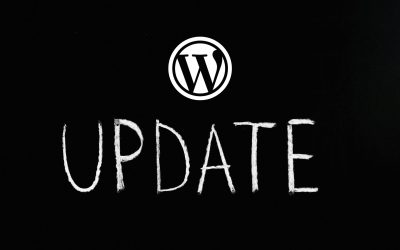For small businesses, having a strong online presence is crucial to reaching new customers and driving growth. One of the key elements of building that presence is choosing the right website hosting. If you’re new to the world of hosting, the process can feel overwhelming with technical jargon and a wide range of options. This beginner’s guide will help you navigate the essentials of website hosting for small businesses, so you can make informed decisions that set your site up for success.
What is Website Hosting?
At its core, website hosting is a service that allows individuals and organizations to make their website accessible on the internet. When you create a website, all the files (images, text, etc.) need to be stored somewhere. A web hosting provider stores these files on its servers and makes them available to users when they visit your domain (website address).
Types of Website Hosting
There are several types of hosting available, each with its own benefits and limitations. Understanding these options is key to choosing the right hosting for your small business:
1. Shared Hosting
Best for: Small businesses with low traffic and limited budgets.
Pros: Affordable and easy to manage.
Cons: Limited resources, and your site shares a server with other websites.
Shared hosting is one of the most common and cost-effective options for small businesses. In this setup, multiple websites share the same server resources, such as CPU, RAM, and bandwidth. This makes it cheaper, but it also means that if one website on the server experiences a traffic spike, it could affect your site’s performance.
2. Virtual Private Server (VPS) Hosting
Best for: Growing businesses that need more control and scalability.
Pros: More resources than shared hosting, greater control over the server.
Cons: Higher cost and requires more technical knowledge.
With VPS hosting, your website still shares a server with other sites, but it’s partitioned in such a way that you have your own dedicated portion of the server’s resources. This allows for more customization and better performance compared to shared hosting.
3. Dedicated Hosting
Best for: Larger businesses or websites with high traffic.
Pros: Full control over the server, high performance, and security.
Cons: Expensive and requires advanced technical expertise.
Dedicated hosting gives you an entire server dedicated to your website alone. This means better performance, higher security, and the ability to fully customize the server to meet your business’s needs. However, it’s typically the most expensive option and requires a higher level of technical management.
4. Cloud Hosting
Best for: Small businesses with variable traffic and a need for scalability.
Pros: Highly scalable, reliable, and flexible.
Cons: Can be more expensive depending on usage.
Cloud hosting spreads your website’s resources across multiple virtual servers, ensuring that if one server fails, another can pick up the slack. This makes cloud hosting incredibly reliable and scalable, perfect for small businesses expecting growth or traffic spikes.
Key Features to Look for in a Hosting Provider
Once you’ve decided on the type of hosting that fits your business, it’s essential to evaluate providers based on their features and services. Here are the most important factors to consider:
1. Uptime Guarantee
Uptime refers to how often your website is available and accessible to users. Look for a hosting provider that offers a 99.9% uptime guarantee or higher. Downtime can cost your business not only in lost sales but also in search engine rankings.
2. Speed and Performance
Website speed is crucial for both user experience and SEO. A slow website can frustrate visitors and lead them to leave before making a purchase or inquiry. Make sure your hosting provider offers fast servers and solid-state drives (SSD) for better performance. A hosting service that includes a server level caching service, such as LiteSpeed is a good idea. LiteSpeed Hosting is a great way to ensure your site loads quickly and reliably.
3. Customer Support
As a small business owner, you may not have the time or technical expertise to troubleshoot hosting issues. Ensure that your provider offers a high level of customer support through live chat, phone, or email, so you can resolve problems quickly. Some providers will boast 24/7 support – but in most cases, this will be via overseas sweat shops and of a lower quality. Be sure to weigh up if you need poor quality 24/7 support, or just good quality, Australian support during critical business operating times.
4. Scalability
Your hosting needs will grow as your business expands. Choose a provider that offers scalable plans, allowing you to upgrade your resources as traffic increases without experiencing significant downtime or migration issues.
5. Security Features
Security is a top priority for any business website. Look for a hosting provider that offers features like SSL certificates, automated backups, firewalls, and malware protection to keep your site and customer data safe.
6. Pricing and Value for Money
Small businesses often operate on tight budgets, so affordability is important. However, it’s also vital to ensure that you’re getting value for your money. Cheaper hosting may come with limited resources or support, so weigh the cost against the features offered.
How to Set Up Your Hosting
Once you’ve chosen your hosting provider and plan, setting up your website is relatively simple. Here’s a quick guide to get started:
- Register a Domain: Many hosting providers also offer domain registration services. If you don’t already have a domain name, you can purchase one through your provider.
- Install a Content Management System (CMS): Most small business websites are built on platforms like WordPress due to its ease of use and flexibility. Many hosting providers offer one-click installations for CMS platforms.
- Upload Your Website Files: If you’re building a custom site, you’ll need to upload your files to the server. You can do this using the control panel (such as cPanel) or through an FTP client.
- Configure Email and Other Features: Most hosting providers allow you to set up professional email addresses (e.g., info@yourbusiness.com) and other features like databases or security settings directly from their control panel.
Choosing the Right Hosting for Your Business
When deciding on the best website hosting for your small business, consider your current needs, your technical expertise, and how much your business might grow in the coming years. If you’re just starting out and need an affordable, easy-to-manage option, shared hosting may be the best choice. As your business grows, you can scale up to VPS, cloud, or dedicated hosting.
No matter which option you choose, the key is to prioritize performance, security, and support. A reliable, fast, and secure website will give your small business the foundation it needs to succeed online.
By following this guide, you’ll have a better understanding of website hosting and how to choose the right provider for your small business. Taking the time to invest in quality hosting now will pay off in the long run by providing a seamless, positive experience for your customers.
Get in touch with Hosting Australia today! Call 1300 761 930 and our team can help with all your questions.







